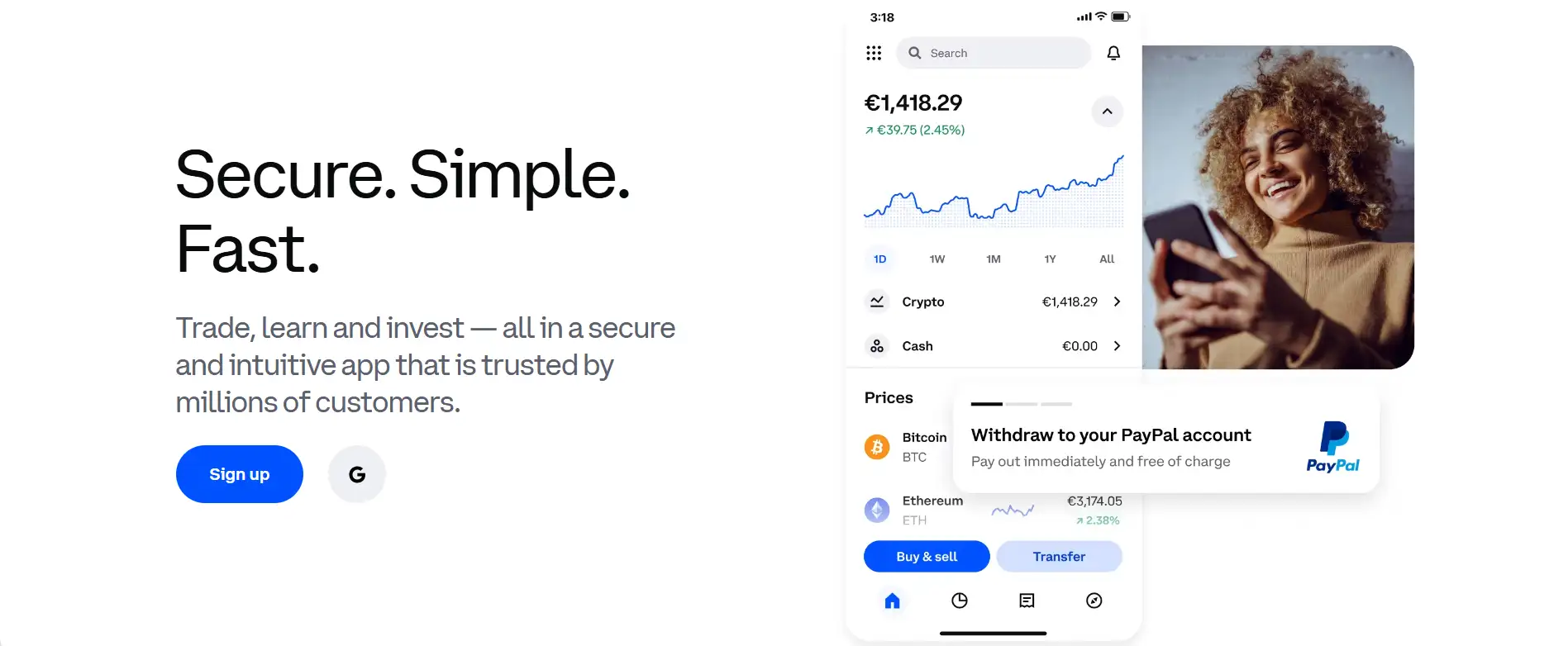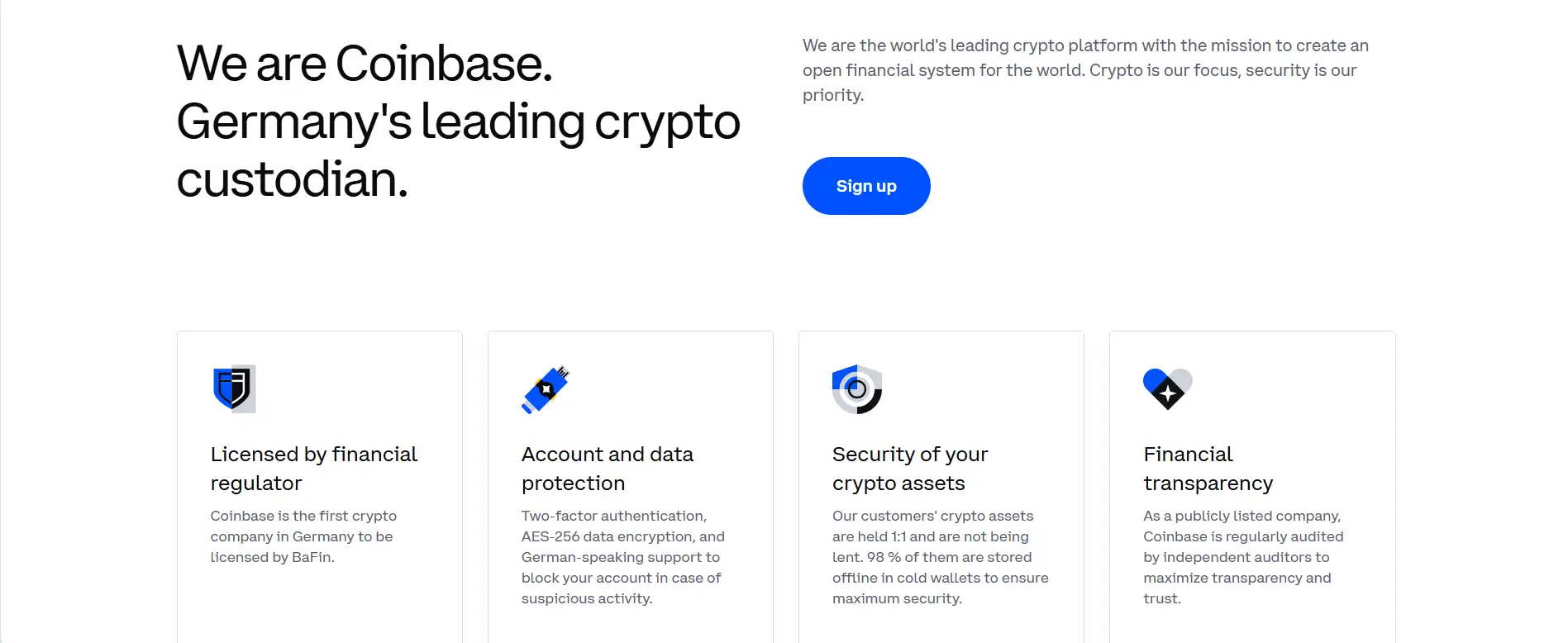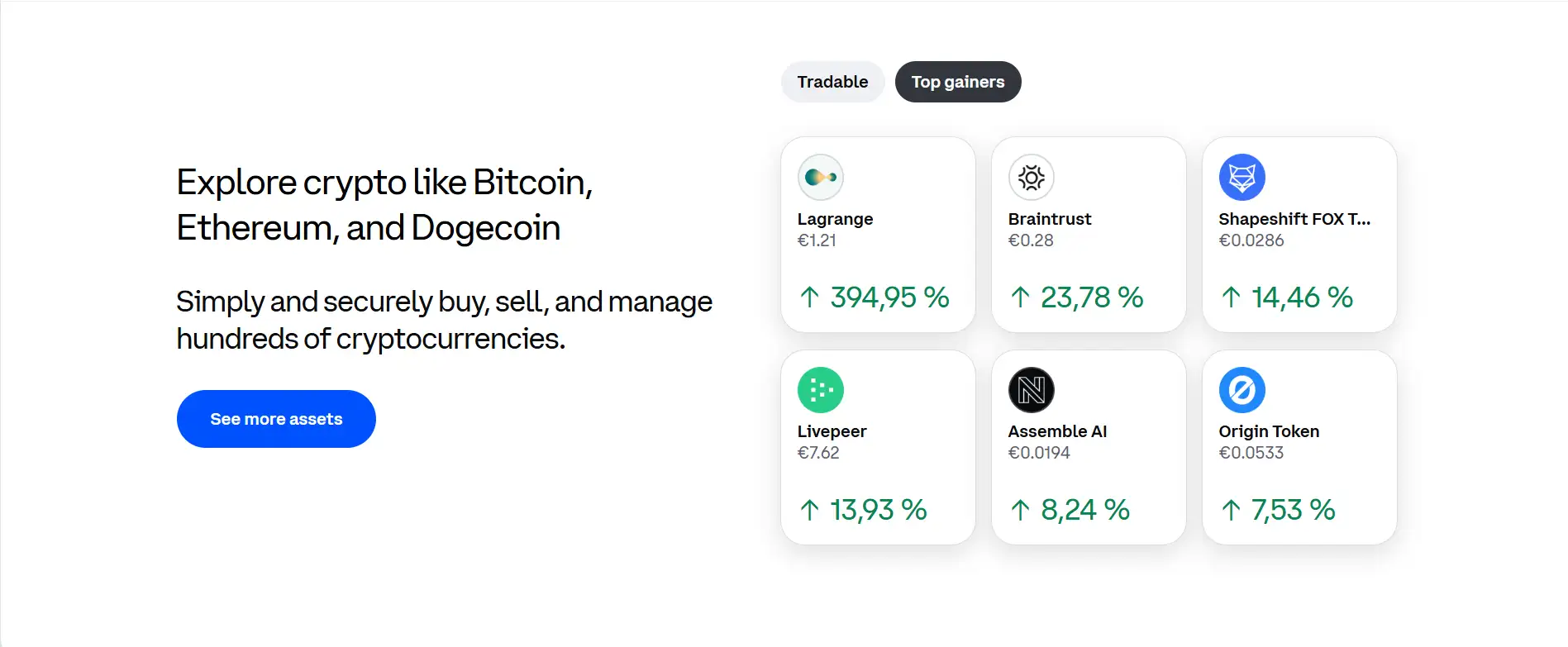About Coinbase
Coinbase is one of the most trusted and widely used cryptocurrency platforms in the world, offering an all-in-one solution for buying, selling, storing, and managing digital assets. It combines security, usability, and compliance into a seamless experience that is ideal for both beginners and seasoned investors. With a mission to build a more open and accessible financial system, Coinbase empowers users in over 100 countries to take full control of their crypto journey.
Through its intuitive interface and diverse product ecosystem, Coinbase supports over 250 crypto assets, offers powerful features like staking rewards, and delivers premium services through offerings like Coinbase One. It is a publicly traded company, committed to transparency, regulatory compliance, and high-level security—storing 98% of user funds in offline cold wallets and encrypting all user data using AES-256 standards.
Coinbase has become a central pillar of the global crypto economy since its founding in 2012. With a clear mission to increase economic freedom, it provides a broad suite of tools for individuals, businesses, institutions, and developers to interact with the world of cryptocurrency. Its core platform allows users to effortlessly buy, sell, stake, and store digital assets, while more advanced tools such as Coinbase Prime and Coinbase Wallet support power users and institutional clients.
What sets Coinbase apart is its commitment to security, compliance, and accessibility. The platform is one of the few crypto companies publicly listed on a major stock exchange (NASDAQ), subject to regular audits and financial oversight. Users benefit from built-in security features such as 2FA, biometric authentication, and the offline storage of the vast majority of crypto funds. In addition, it never lends out user funds, ensuring maximum financial control and trust.
Coinbase supports over 250 crypto assets including Bitcoin (BTC), Ethereum (ETH), Solana (SOL), XRP, Dogecoin (DOGE), and many more. It also provides opportunities to earn crypto via staking and rewards programs. Users can schedule recurring purchases using automated savings plans—a convenient way to build a portfolio gradually while minimizing the impact of market volatility.
Developers have access to powerful APIs and blockchain infrastructure via the Coinbase Developer Platform, enabling integration of crypto functionality into apps and services. Coinbase also supports institutional services through Coinbase Prime, including custody, analytics, and execution tools. Its multi-layered ecosystem bridges the gap between retail users and large-scale enterprises looking to enter the crypto space.
Coinbase competes with exchanges such as Binance, Kraken, and OKX. However, its focus on regulatory clarity, ease of use, and secure architecture continues to make it a preferred choice for both retail and institutional users.
Coinbase provides numerous benefits and features that position it as a leading platform in the cryptocurrency industry:
- Global Accessibility: Available in 100+ countries, Coinbase enables anyone to buy, sell, and manage crypto easily.
- Wide Asset Support: Trade and stake over 250 cryptocurrencies, including major assets like BTC, ETH, ADA, and SOL.
- High-Level Security: Funds are secured with AES-256 encryption, 2FA, and 98% cold wallet storage.
- Recurring Investments: Set up automated crypto savings plans on a weekly, bi-weekly, or monthly basis.
- Staking Rewards: Earn passive income by staking supported assets directly within your account.
- Coinbase One: Enjoy zero trading fees on up to €10,000/month, higher staking rewards, and 24/7 premium support.
- Developer Ecosystem: Leverage APIs, SDKs, and infrastructure tools to build and scale crypto-enabled applications.
Getting started with Coinbase is quick and beginner-friendly. Here’s how you can join millions of users and start trading:
- Step 1: Create Your Account — Go to coinbase.com and sign up with your email and personal information.
- Step 2: Verify Identity — Complete a quick identity verification to comply with financial regulations and unlock trading features.
- Step 3: Add Payment Method — Link your account to a payment method such as a credit card, bank account, PayPal, or Apple Pay.
- Step 4: Buy and Sell Crypto — Start buying and selling from a selection of over 250 assets, or set up recurring purchases.
- Step 5: Secure Your Wallet — Enable 2FA, biometrics, and consider using Coinbase Wallet for additional protection.
Coinbase FAQ
Coinbase stores 98% of all customer funds in offline cold wallets to minimize the risk of hacks and cyberattacks. By keeping these assets disconnected from the internet, Coinbase ensures that the majority of user funds remain protected even in the event of a security breach. This is a key part of the platform’s multi-layered security strategy.
Coinbase One is a premium subscription offered by Coinbase that provides users with zero trading fees on up to €10,000 worth of crypto trades per month. Members also receive higher staking yields and 24/7 access to priority customer support. It's ideal for active traders who want to save on transaction costs and access additional benefits.
Yes, Coinbase allows users to create automated savings plans to buy crypto on a recurring basis. You can set up purchases to occur weekly, bi-weekly, or monthly. This feature helps with dollar-cost averaging and is useful for building a long-term crypto portfolio with minimal effort.
Coinbase offers a full Developer Platform that includes APIs, SDKs, and blockchain tools for integrating crypto into apps and services. Developers can access endpoints for wallet functionality, trading, staking, and smart contract deployment. It's ideal for building both consumer-facing applications and institutional-grade tools on top of the Coinbase ecosystem.
Yes, Coinbase offers integrated staking services for several major cryptocurrencies. Users can earn up to 14.17% in staking rewards simply by holding eligible assets in their account. Rewards are automatically calculated and distributed, and there's no need to manage your own validator or node.
You Might Also Like












